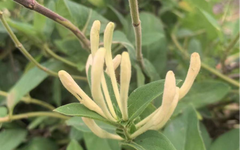Health and Wellness Approaches
In the scorching summer, there is a plant that has become the focus of attention due to its unique charm and significant medicinal value. This plant is Honeysuckle, also known as Jin Yin Hua (金银花), named for its flowers that start white and later turn yellow, hence the name “Honeysuckle”. This plant is not only aesthetically pleasing but also possesses rich medicinal value and unique pharmacological effects.
1
Characteristics of Honeysuckle

Honeysuckle is a perennial semi-evergreen climbing and creeping shrub with slender, hollow branches that are brown to reddish-brown. Its leaves are ovate, opposite, and both the branches and leaves are densely covered with soft hairs and glandular hairs. During the summer flowering season, the bracts are leaf-like, and the tubular flowers emit a faint fragrance, initially white and gradually turning yellow, creating a beautiful contrast of yellow and white. The flower buds of Honeysuckle are rod-shaped, thicker at the top and tapering at the bottom, with a greenish-white or yellowish-white surface densely covered with fluff. When open, the flower crown is tubular, with a bilabiate tip, accompanied by a fragrant aroma, and has a mild and slightly bitter taste.
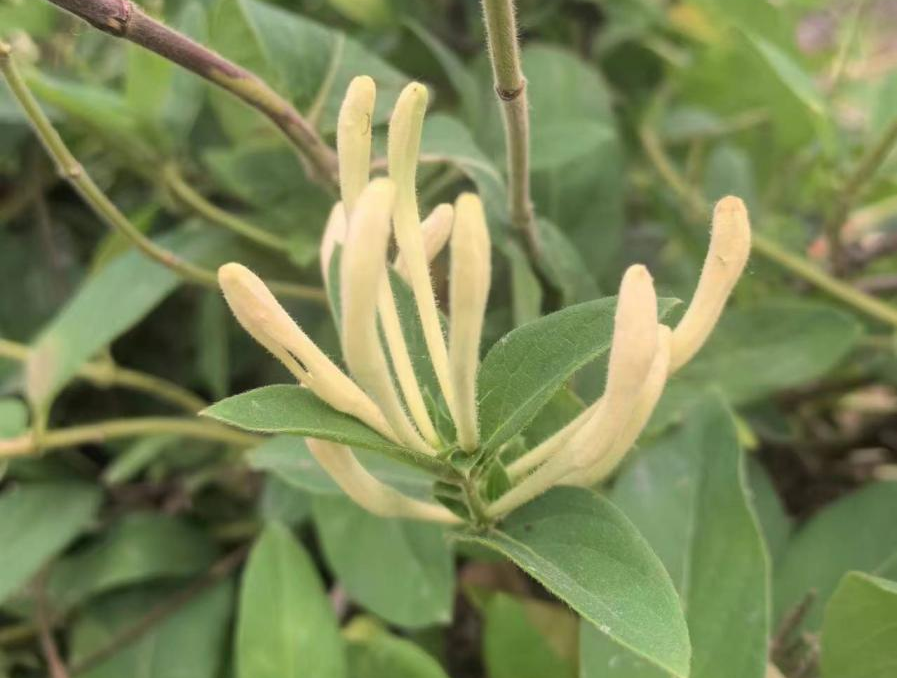
2
Medicinal Value of Honeysuckle

Honeysuckle has been revered since ancient times as an excellent remedy for clearing heat and detoxifying. It is sweet and cold in nature, and it enters the Lung (Fei), Heart (Xin), and Stomach (Wei) meridians. Its sweet and cold properties clear heat without harming the stomach, and its aromatic nature can dispel evil. Honeysuckle can clear heat and detoxify, release the exterior and disperse cold, benefit the throat and reduce fire, and reduce swelling and dissipate nodules. It is effective in treating colds, fevers, sore throats, oral ulcers, gum swelling, and pediatric heat rash. Additionally, Honeysuckle has certain auxiliary therapeutic effects for diseases such as hepatitis and mastitis, helping to reduce swelling and promote the resolution of inflammation.
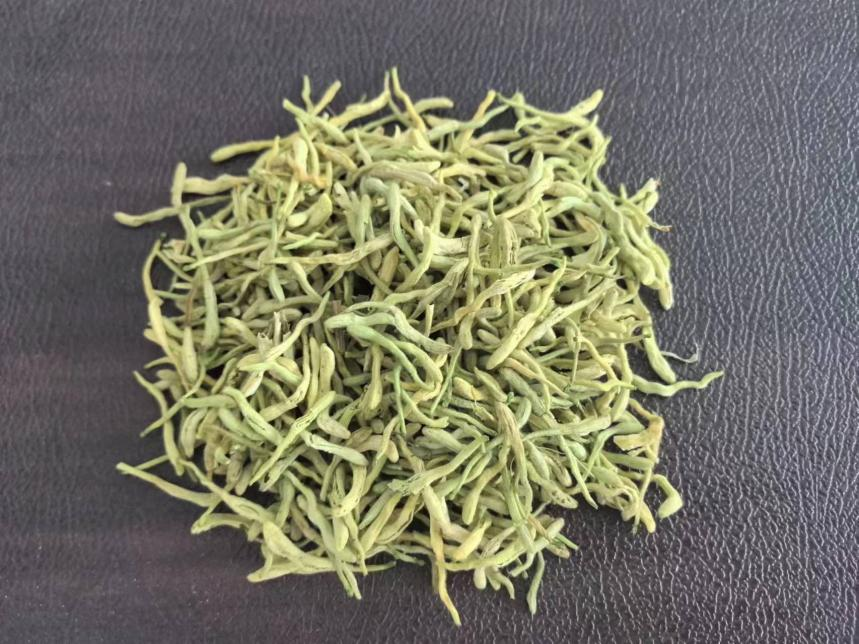
3
Edible Value of Honeysuckle

Honeysuckle not only has medicinal value but is also a delicious ingredient; consuming Honeysuckle foods can help regulate individuals with a hot constitution and prevent heatstroke, colds, and intestinal infectious diseases. People combine Honeysuckle with other ingredients to create various delicious drinks and dishes. For example, Honeysuckle syrup can clear heat and detoxify, relieve summer heat; Honeysuckle and lotus seed soup can strengthen the spleen and stop diarrhea; Sanhua drink can reduce swelling and relieve pain, soothe the liver and brighten the eyes; and Yinjuhua hawthorn drink can nourish the liver, brighten the eyes, and aid digestion and weight loss.
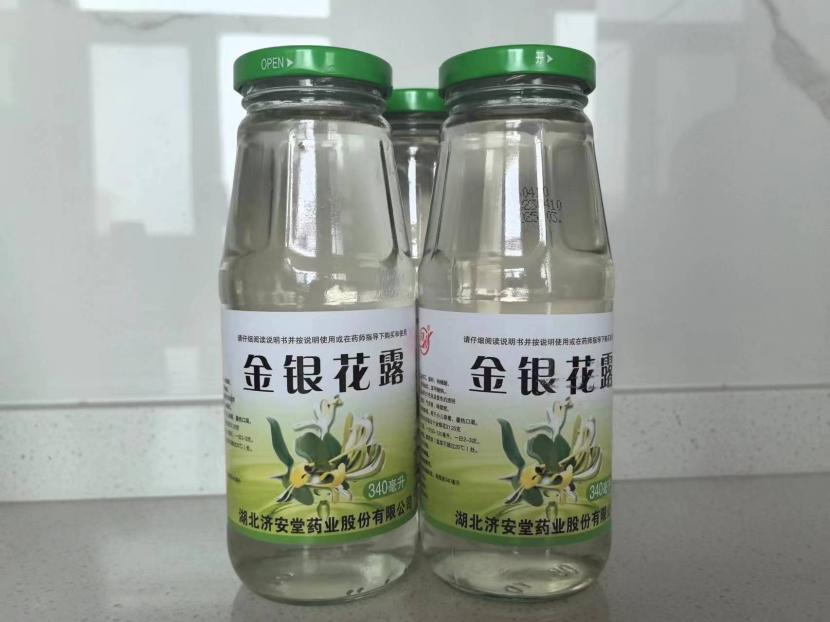
4
Precautions for Consuming Honeysuckle

Although Honeysuckle has high medicinal value, it is inherently cold in nature, and attention should be paid to the following situations during use to avoid adverse effects.1.Avoid Excessive Consumption: Excessive consumption of Honeysuckle may irritate the intestines, and in severe cases, it may cause abdominal pain and diarrhea. Generally, when brewing Honeysuckle tea, about three grams of Honeysuckle can be added and brewed with approximately 90 degrees Celsius boiling water.2.Prohibited During Special Periods:Prohibited during Menstruation: Honeysuckle is a cold-natured herb, and if women consume it during menstruation, it may induce dysmenorrhea and adversely affect menstrual flow.Use with Caution During Pregnancy and Lactation: Due to its cold nature, women in these special periods should also be cautious when consuming Honeysuckle.3.Prohibited for Individuals with Cold Constitution: Honeysuckle is quite cold in nature, and individuals with a cold constitution are advised not to consume it, as it may exacerbate their cold condition.4.Avoid Cold Drinks: Honeysuckle should not be consumed as a cold drink; it should be brewed with boiling water cooled to about 90°C and consumed warm, which can maximize its efficacy without causing diarrhea.5.Prohibited for Allergic Individuals:Individuals allergic to Honeysuckle should not use it.Source | Pharmaceutical DepartmentContributed by | Li YanliEdited by | Publicity Department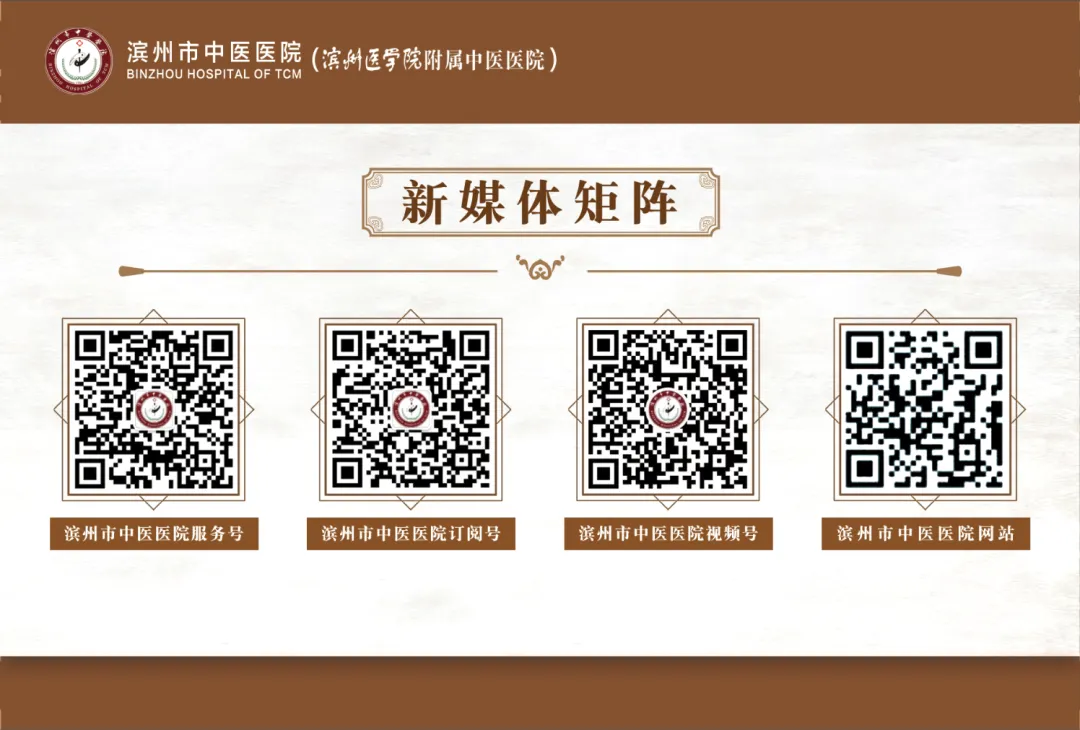
New Hospital Address: West of Xinli River, Binzhou City, South of North Outer Ring Road, North of Huanghe 16-1 Road

